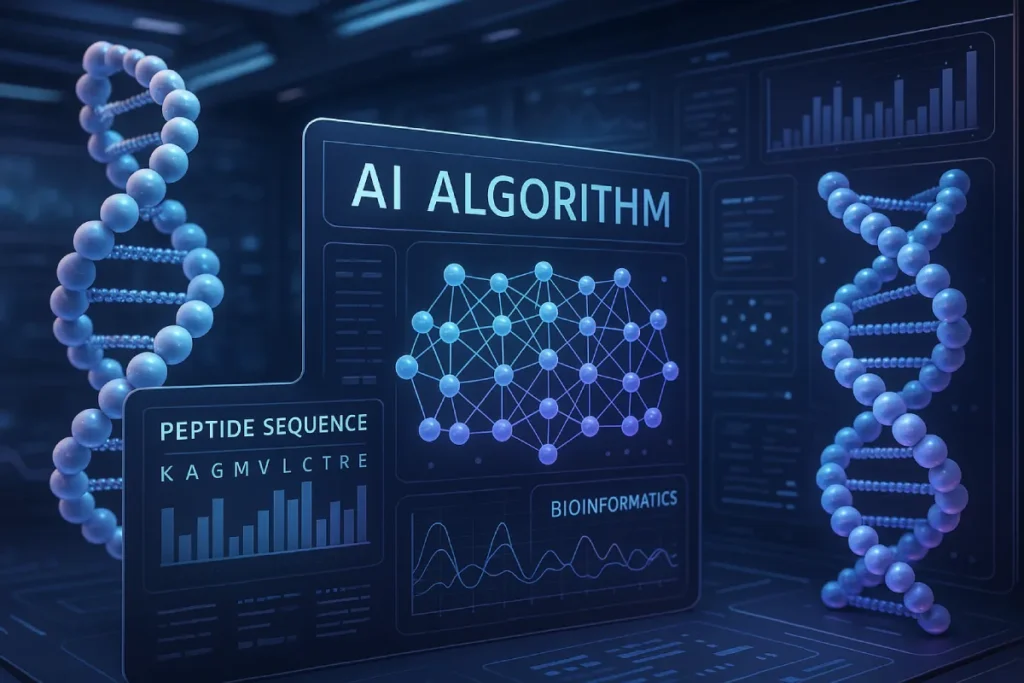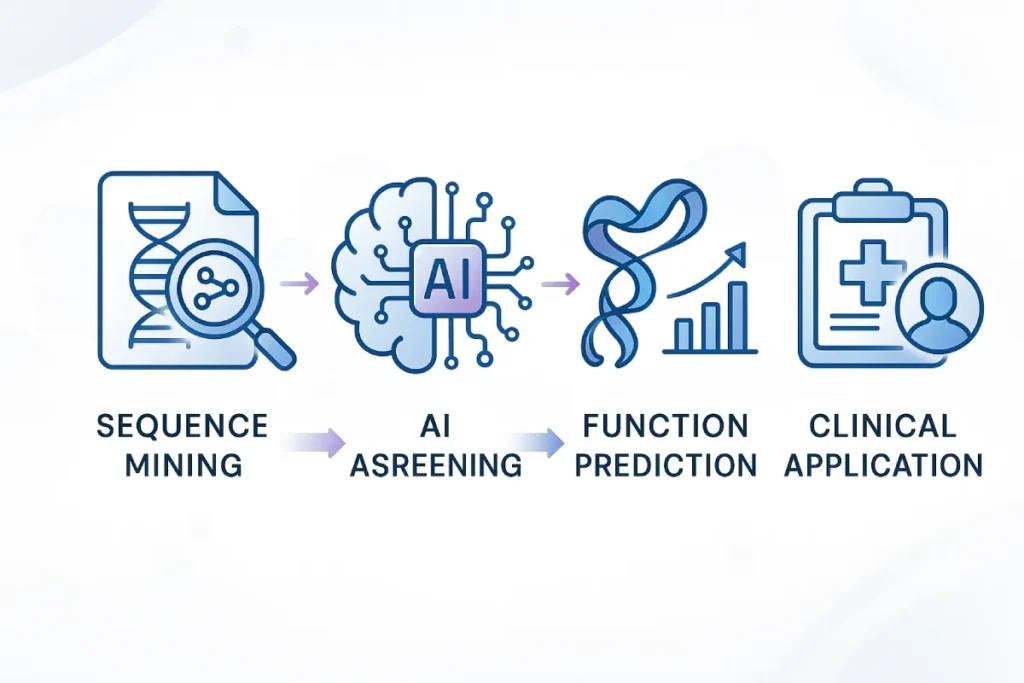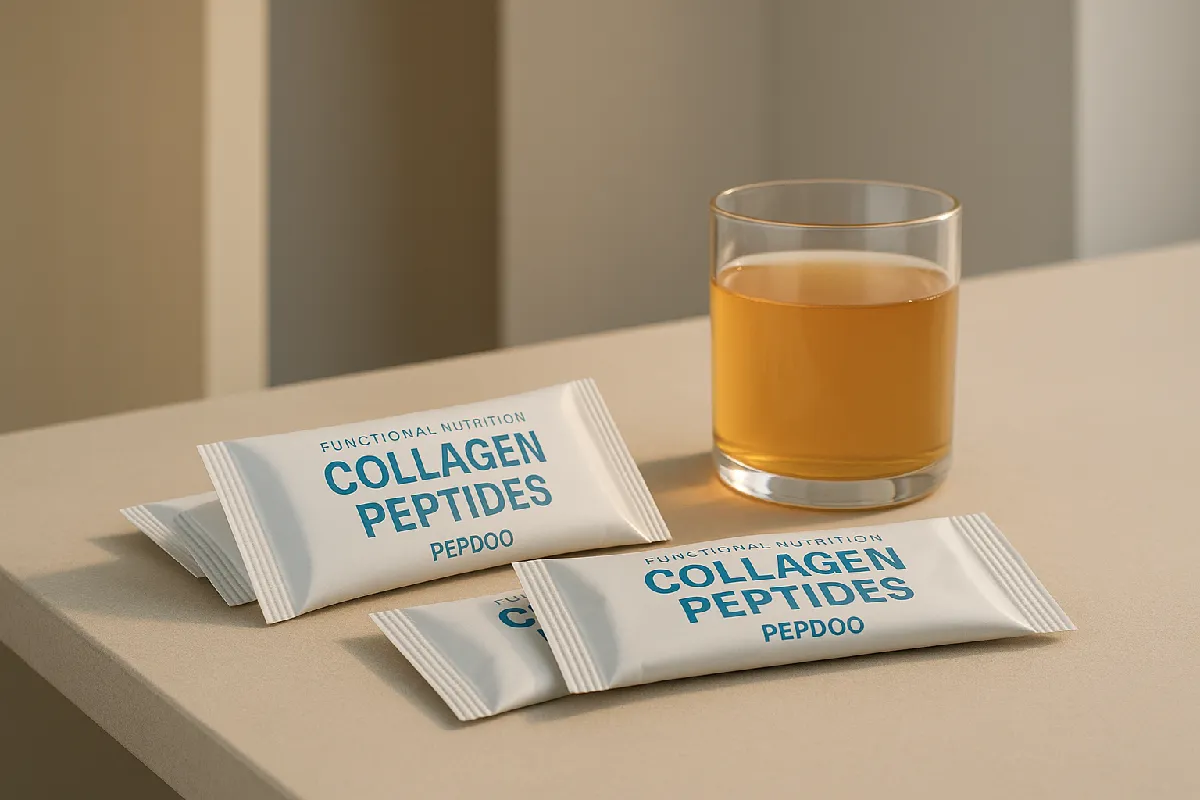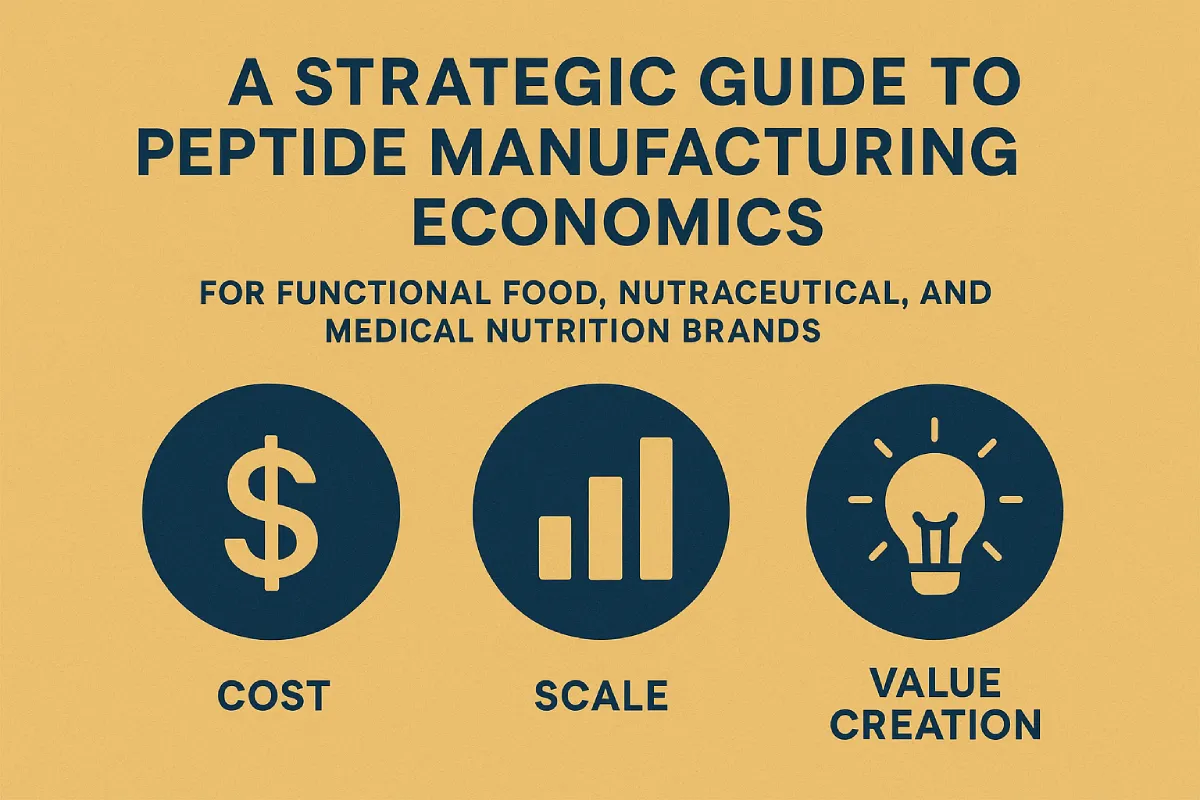Revolutionizing Peptide Discovery: The Power of Informatics and AI Screening
Peptides have emerged as pivotal bioactive compounds across industries—from pharmaceuticals and functional nutrition to skincare and sports recovery. However, despite growing demand, traditional peptide discovery remains slow, resource-intensive, and functionally uncertain. Today, the convergence of peptide informatics and artificial intelligence (AI) is revolutionizing how bioactive peptides are identified, designed, and validated—accelerating innovation from sequence to function.
At PEPDOO®, a full-spectrum functional peptide manufacturer, we leverage both wet-lab expertise and computational tools to deliver customized, clinically-relevant peptide solutions for B2B partners worldwide. This article explores how peptide informatics and AI screening are transforming peptide discovery—and how your brand or R&D team can benefit from this paradigm shift.
The Discovery Bottleneck in Peptide Innovation
Traditionally, discovering functional peptides involved enzymatic hydrolysis of protein substrates, followed by fractionation and biological screening—a process that could take months or even years. Furthermore, identifying the exact active sequence within a complex hydrolysate is challenging, with low hit rates and limited reproducibility.
For ingredient developers, supplement formulators, and pharmaceutical researchers, this bottleneck translates into high development costs, delayed time-to-market, and uncertain regulatory outcomes. There is a growing need for data-driven, predictive frameworks that can efficiently screen peptide candidates and correlate sequence motifs with target bioactivities.

What is Peptide Informatics?
Peptide informatics is the computational analysis of peptide sequences to predict structural, functional, and physicochemical properties. It draws upon bioinformatics databases, AI algorithms, and cheminformatics tools to assess peptide candidates before synthesis or in-vitro testing.
Key components of peptide informatics include:
- Sequence-based prediction (e.g., hydrophobicity, net charge, solubility)
- Structure-function modeling using protein folding simulations or AlphaFold embeddings
- Bioactivity databases such as BIOPEP, PeptideAtlas, and CAMP
- Peptide-receptor docking and cellular pathway simulation
For B2B users, peptide informatics reduces time and resource requirements by narrowing down promising candidates from thousands of potential sequences [1].
AI-Powered Screening: Predicting Function Before Synthesis
AI has brought a new layer of predictive power to peptide informatics. Using deep learning, transformer models, and protein language models like ProtBert and ESM, researchers can predict not only peptide structure, but also potential biological function—even without prior experimental data.
Examples of AI screening capabilities include:
- Predicting antioxidant or anti-inflammatory activity from sequence motifs
- Simulating gut absorption and blood-brain barrier penetration
- Designing peptide analogs with improved stability or reduced immunogenicity
- Identifying novel peptides from food proteins with no prior functional annotation
These models are particularly powerful for discovering functional peptides in emerging fields like nootropics, metabolic health, and immunonutrition—hot categories in the global functional ingredients market [2].
🚀Accelerate Your Peptide Innovation with PEPDOO®
From in silico screening to clinical-grade peptide production, our integrated informatics + lab pipeline helps you bring validated peptide ingredients to market faster.
Custom screening requests, functional validation, and formulation support available.
Wet-Lab Integration: From In Silico to Real-World Validation
While AI can predict potential, it is not a substitute for real-world validation. At PEPDOO®, we integrate AI-powered design with experimental confirmation through a robust pipeline:
- In silico screening of internal and external peptide libraries
- Multi-enzyme hydrolysis based on predictive cleavage sites
- High-throughput bioassays for activity screening (e.g., DPPH, ACE inhibition, glycation models)
- Stability and solubility tests across delivery formats
- Optional clinical collaboration for finished product substantiation
This closed-loop approach ensures the transition from predicted to functional is fast, reliable, and scalable—ideal for OEM and private label brands seeking differentiated formulations.
Why AI Screening Matters for Functional Ingredient Brands
For ingredient buyers and formulation managers, the benefits of peptide informatics go far beyond academic insight:
| Traditional Approach | AI-Powered Approach |
|---|---|
| Trial-and-error hydrolysis | Predictive cleavage & activity modeling |
| Months to years of lab screening | Weeks to identify viable candidates |
| Narrow peptide spectrum | Access to thousands of novel peptide designs |
| Manual characterization | Automated physicochemical & bioactivity analysis |
Revolutionizing Peptide Discovery: The Power of Informatics and AI Screening
Peptides have emerged as pivotal bioactive compounds across industries—from pharmaceuticals and functional nutrition to skincare and sports recovery. However, despite growing demand, traditional peptide discovery remains slow, resource-intensive, and functionally uncertain. Today, the convergence of peptide informatics and artificial intelligence (AI) is revolutionizing how bioactive peptides are identified, designed, and validated—accelerating innovation from sequence to function.
At PEPDOO®, a full-spectrum functional peptide manufacturer, we leverage both wet-lab expertise and computational tools to deliver customized, clinically-relevant peptide solutions for B2B partners worldwide. This article explores how peptide informatics and AI screening are transforming peptide discovery—and how your brand or R&D team can benefit from this paradigm shift.
From Database to Marketplace: Applications Across Industries
Functional Nutrition
AI-predicted peptides with antioxidant, ACE-inhibitory, and lipid metabolism benefits are now entering ready-to-drink (RTD), sachet, and capsule formulations—backed by clean-label and “clinically inspired” positioning.
Skincare & Beauty
Peptides designed for anti-glycation, collagen synthesis, and inflammation reduction are making waves in ingestible beauty and topical applications, with better efficacy profiles thanks to AI-guided selection.
Sports & Recovery
Peptides targeting muscle repair, anti-fatigue, and immune support can now be screened and customized based on molecular weight, amino acid ratio, and GI absorption models.
Cognitive Health
With interest in nootropic peptides rising, AI models help identify brain-targeted sequences with neurotransmitter modulation or neuroprotection functions [3].
PEPDOO® offers end-to-end services—from AI screening to commercial-scale production—for a full range of peptide applications.

Challenges in AI-Powered Peptide Discovery
- Data quality dependence: Poorly labeled or biased datasets affect model performance
- Black-box algorithms: Difficult to interpret why certain peptides are ranked higher
- In vivo translation gap: Predicted activity may not always replicate in humans
- Regulatory acceptance: Novel AI-generated peptides may face additional scrutiny
As a result, the integration of computational and experimental platforms remains essential for credible functional claims and regulatory approval [4].
Why Choose PEPDOO® as Your Peptide Innovation Partner?
- AI + Lab Integration: Seamlessly combining in silico discovery with patented hydrolysis & fermentation
- Full-spectrum raw materials: Including bovine collagen, whey, casein, chicken gizzard, spleen, pea, pumpkin seed, and more
- Custom formulation support: Sachets, capsules, RTDs, cosmetics, and more
- Regulatory-ready dossiers: Supporting global compliance and clean-label positioning
Conclusion: From Prediction to Performance
Peptide informatics and AI screening are no longer futuristic—they are the present and future of peptide innovation. By integrating data science with biological insight, B2B stakeholders can unlock faster, more precise, and more sustainable development pathways for functional ingredients.
🤝Let’s Turn Peptide Data into Commercial Value
Collaborate with PEPDOO® to unlock the full potential of AI-powered peptide discovery. Whether you’re in R&D, formulation, or sourcing—we’re here to co-create the next innovation.
📄 Get a peptide library, discuss your use case, or request proprietary screening support today.
FAQ
Peptide informatics leverages large-scale peptide databases, sequence-activity relationships, and AI models to screen and rank bioactive peptide candidates before wet-lab testing. This significantly shortens the discovery cycle, reduces trial-and-error costs, and enhances functional targeting—ideal for rapid product development.
AI can predict function from sequence, simulate stability, optimize bioavailability, and uncover novel peptides—reducing both time and development risk for ingredient innovation.
Yes. PEPDOO® offers collaborative AI discovery using proprietary peptide libraries and data-driven algorithms to help partners create functional peptides aligned with product goals.
Our workflow includes high-throughput assays, stability testing, and optional clinical partnerships to ensure predicted peptides demonstrate real-world efficacy and safety.
We provide animal-, plant-, and marine-sourced peptides suitable for capsules, beverages, powders, and topical formulations—all supported by technical documentation.
We provide full application support including solubility analysis, sensory testing, and formulation assistance for RTDs, softgels, sachets, and more.
Our vertically integrated capabilities—AI screening, patented production, and GMP delivery—enable us to serve as your full-service peptide innovation partner.
Simply reach out to request datasheets, schedule a discovery call, or share your target claim—we’ll match or co-develop a peptide solution for your needs.
References
- Minkiewicz, P., Iwaniak, A., & Darewicz, M. (2019). BIOPEP-UWM database of bioactive peptides: current opportunities. International Journal of Molecular Sciences, 20(23), 5978.
- Li, F., Wen, H., Li, L., & Wang, J. (2021). Advances in bioactive peptides predicted by artificial intelligence: A review. Frontiers in Nutrition, 8, 705503.
- Zou, T., He, T., Li, H., Tang, H., & Xia, E. (2020). Neuroprotective peptides derived from food proteins: A review. Trends in Food Science & Technology, 99, 512–522.
- Reczko, M., & Bohr, H. (2018). Peptide bioactivity prediction using machine learning methods. Briefings in Bioinformatics, 19(3), 482–494.






